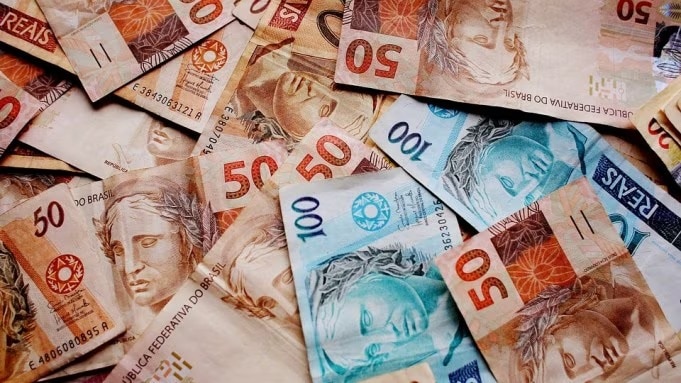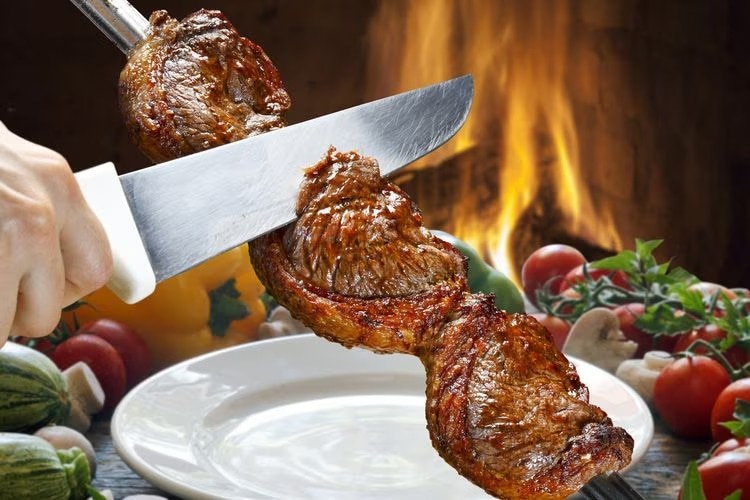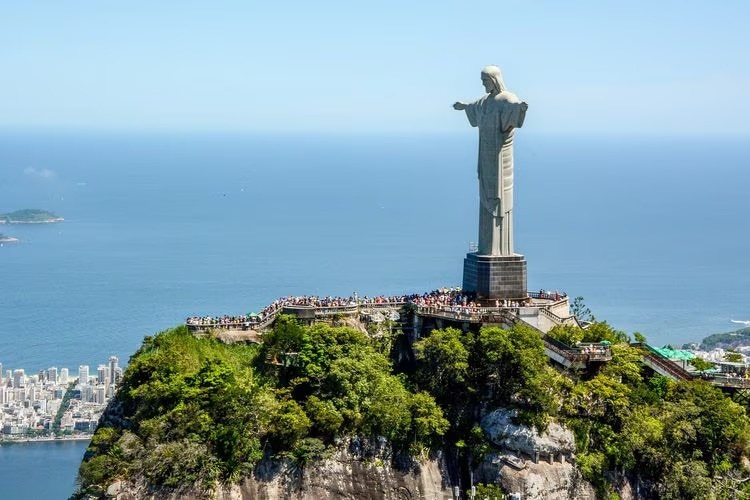-
2026/04/27
Seattle(SEA) -
2026/05/04
Sao Paulo
(Updated: July, 28, 2025 14:02)
Brazil Travel Tips and Information
Official Name
Federative Republic of Brazil
Capital
Brasília
Population
Country Code
About 212.6 million
BR
Country Code (international calls)
+55
The flight time to Brazil is approximately 10~11 hours. Check the climate, currency, religion, manners, other information of Brazil below. Wishing you pleasant travels to Brazil.
Brazil, officially called the Federative Republic of Brazil, is the largest country on the South American continent, sharing borders with all South American nations except Ecuador and Chile.
Compare Airfares for Flights to Brazil
Compare Airfares for Flights to Brazil
Compare Airfares for Flights to Brazil
Compare Airfares for Flights to Brazil
Compare Airfares for Flights to Brazil
Local Climate / Weather
Brazil's vast landscape spans diverse climates, from tropical and equatorial regions in the north to temperate zones in the south, making it an all-year travel destination. Generally, the country experiences warm temperatures, with a rainy season from December to March in most regions. Travelers should note that the southern parts experience cooler winters from June to August, with temperatures dropping as low as 5°C (41°F) in some areas.
Currency & Tipping
Currency
The official currency of Brazil is the Brazilian Real (BRL), symbolized as R$. Travelers should note that currency exchange for Brazilian Reals is best done at banks, exchange offices, or authorized currency exchanges upon arrival. Major international credit cards like Visa, Mastercard, and American Express are widely accepted, especially in urban areas and popular tourist destinations, making it easy for travelers to use electronic payments.
Tipping
Exchange rates can vary across locations, so it's advisable to check rates beforehand. Avoid street money changers to minimize the risk of scams. ATMs in Brazil accept international cards, and they are a reliable source for withdrawing local currency, but travelers should be aware that some ATMs may only operate during specific hours or require added fees.
Useful Travel Information

Voltage & Electrical Outlets
Brazil operates on a standard voltage of 127/220V and uses Type N plug sockets with two round pins and a grounding pin. Travelers should check the voltage requirements of their electronic devices, as some areas may have a dual-voltage system (127V and 220V). Bringing a universal adapter with voltage conversion is advisable for a smooth and safe experience when charging or using electronic devices in Brazil.

Internet Connectivity
Brazil has a well-established internet infrastructure, especially in urban areas. Free Wi-Fi is commonly available in hotels, restaurants, and shopping centers, but coverage may be limited in remote areas. Travelers can also stay connected by purchasing local SIM cards from major carriers such as Claro, Vivo, and TIM Brasil, which offer a variety of data packages suited to short-term visitors. For instance, Claro and Vivo offer daily, weekly, and monthly prepaid data plans, allowing travelers to choose based on the length of stay and internet usage needs. Using a SIM card ensures reliable connectivity, enabling easy access to maps, translation apps, and travel information.
Water for Consumption (Drinking Water)
While tap water in urban areas of Brazil is generally treated, it’s recommended for travelers to consume bottled or filtered water for drinking, as a precaution against waterborne contaminants. Bottled water is widely available at reasonable prices across the country. When dining out, it’s advisable to request bottled water rather than tap water to minimize health risks. For travelers planning extended stays or visits to rural areas, using water purification tablets or portable filters may add an extra layer of safety.
Culture, Religion & Social Etiquette
Culture
Brazil is renowned for its vibrant culture, which is a blend of Portuguese, African, and Indigenous influences. Key cultural highlights include Carnival, a colorful annual festival celebrated across the country, especially in Rio de Janeiro, known for its parades, samba music, and elaborate costumes. Football (soccer) is deeply embedded in Brazilian culture, with stadiums like Maracanã being national treasures. Additionally, Capoeira, a Brazilian martial art that combines dance, acrobatics, and music, offers travelers an insight into Brazil’s Afro-Brazilian heritage.
Religion
Brazil is predominantly Catholic, with about 65% of the population identifying with the faith, as it was introduced by Portuguese colonizers. Brazilian Catholics often blend Catholic beliefs with elements from African and Indigenous religions, creating unique practices that reflect the country’s diversity. Protestant Christianity is also widely practiced, along with growing numbers of other religions, including Spiritism and Umbanda, a Brazilian religion that incorporates Afro-Brazilian, Indigenous, and Catholic beliefs. Visitors can witness impressive churches and religious festivals like the Feast of Our Lady of Aparecida, the country’s patron saint, celebrated every October.
Social Etiquette
Brazilian culture places a high value on friendliness and warmth, so it’s common for greetings to be warm and expressive. Brazilians often greet friends with a light hug or kiss on the cheek. For business meetings or formal interactions, a handshake with eye contact is standard. Brazilians tend to stand close during conversations, which might be new for travelers used to more personal space. Punctuality is relaxed, especially in social settings, but being on time for business meetings is appreciated.
Food Culture
Brazilian cuisine is a vibrant mix of indigenous, African, and Portuguese influences, making it an exciting exploration for travelers. Known for its rich flavors and hearty ingredients, Brazilian food often includes staples like rice, beans, and farofa (toasted cassava flour), creating satisfying meals that many travelers would find comforting yet novel. A classic introduction to Brazilian cuisine is the beloved feijoada, a black bean stew with various meats, traditionally served with rice and greens, and often enjoyed on Wednesdays and Saturdays. For travelers looking to experience authentic flavors, churrasco is a must-try. This Brazilian-style barbecue offers an all-you-can-eat feast of skewered meats grilled over open flames and typically served in churrascarias, or Brazilian steakhouses. Street food in Brazil is equally enticing, with popular options like coxinha, a savory chicken croquette, and pastel, a fried pastry filled with cheese or meats that locals enjoy as a quick snack. For those with a sweet tooth, brigadeiro, a chocolate truffle-like treat, is a Brazilian favorite, while açaí bowls offer a refreshing taste of Amazonian fruit that’s perfect for warm weather. Travelers seeking well-rated dining spots should consider trying restaurants such as Mocotó in São Paulo, known for its traditional northeastern Brazilian dishes with a modern twist, and Aprazível in Rio de Janeiro, which combines locally sourced ingredients with scenic hillside views.
Major Tourist Attractions & UNESCO World Heritage Sites
Major Tourist Attractions
There are many tourist destinations in Brazil. The main ones are Iguazu Falls, Corcovado Hill, Pont de Açúcar, Copacabana & Leme Beach, and the Oriental Quarter. Iguazu Falls, one of the three largest waterfalls in the world, is a powerful sight. Corcovado Hill is a spectacular sightseeing spot overlooking the city of Rio de Janeiro and is a symbol of Brazil.
UNESCO World Heritage Sites
The country is rich in cultural and natural heritage, and World Heritage Sites include Iguassu National Park, Pantanal Nature Reserve, Guanabara Bay, Ouro Preto Historic Area, Serra da Capivara National Park, and the Central Amazon Conservation Area Complex.
Travel FAQs
How is the safety situation in Brazil? What should I be careful about?
Brazil does have some safety concerns, so it’s wise for travelers to remain vigilant. Violent crimes can occur, especially in city areas, so it’s best to avoid being out alone or traveling at night.
When is the best season to visit Brazil?
The ideal time to visit Brazil is from September to October, which avoids the heaviest part of the rainy season.
Is English widely spoken in Brazil?
English is not commonly spoken, but it may be possible to communicate in popular tourist spots or major hotels.
If I fly to Brazil, which airport is the most popular?
São Paulo’s Guarulhos International Airport is the primary entry point and connects travelers to both domestic and international destinations.




